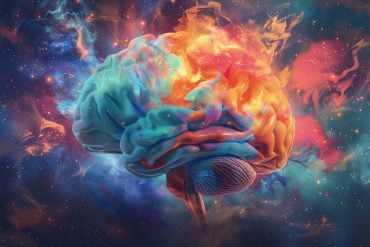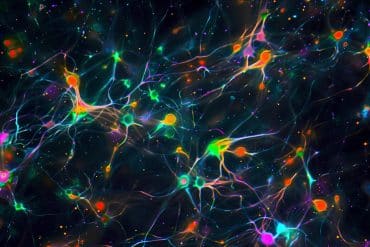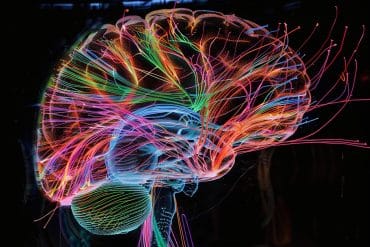Summary: A new study identifies a protein that may help make vaccines more effective and provide protection from diseases such as cancer.
Source: Boston University Medical Center.
Researchers have discovered a protein they believe would help make vaccinations more effective and provide protection from other diseases such as cancer.
The findings, which appear online in Scientific Reports, allows for greater understanding of how vaccine enhancers work and can best be used.
Researchers from Boston University School of Medicine (BUSM) purified a protein found on the exterior of bacteria (neisseria meningidis) and used it as an accessary to provide a better vaccination response. Typically, vaccines can either increase the amount of antibody production or they can stimulate cells (called cytotoxic T cells) to directly kill the offending agent. In this case, the protein, called PorB, is unique in that it can do both.
“This study has wide implications as it could not only be used to help the body identify and fight off bacterial infections, but it could also potentially help the body use its own machinery to fight off other diseases like cancer, HIV, and influenza before they have a chance to establish within the body,” explained corresponding author Lee Wetzler, MD, professor of medicine and microbiology at BUSM.

In this study, the researchers used two experimental models. The first model was given a vaccination with antigen and mixed PorB, while the second model was given the antigen alone. The model that received the PorB had an increase in the response to the vaccine antigen, evidenced by an increased number of activated cells in the lymph nodes and a gain in the production of cytotoxic T cells, as compared to the vaccination with the antigen alone.
“Our study deepens the general understanding of how vaccine adjuvants modulate immune responses. The antigen formulation with PorB triggers a sequence of cellular events at the periphery and in lymphoid tissue that are critical for the establishment of protection to a broad array of infectious diseases, and maybe for other diseases like cancer,” added Wetzler, a physician in Boston Medical Center’s Department of Infectious Diseases.
Funding: Funding for this study was provided by a National Institutes of Health grant AI040944.
Source: Gina DiGravio – Boston University Medical Center
Image Source: NeuroscienceNews.com image is in the public domain.
Original Research: Full open access research for “The TLR2 Binding Neisserial Porin PorB Enhances Antigen Presenting Cell Trafficking and Cross-presentation” by Michael L. Reiser, Munir M. Mosaheb, Christina Lisk, Andrew Platt & Lee M. Wetzler in Scientific Reports. Published online April 7 2017 doi:10.1038/s41598-017-00555-4
[cbtabs][cbtab title=”MLA”]Boston University Medical Center “Protein That Increases Effectiveness of Vaccines Discovered.” NeuroscienceNews. NeuroscienceNews, 7 April 2017.
<https://neurosciencenews.com/vaccine-protein-porb-6363/>.[/cbtab][cbtab title=”APA”]Boston University Medical Center (2017, April 7). Protein That Increases Effectiveness of Vaccines Discovered. NeuroscienceNew. Retrieved April 7, 2017 from https://neurosciencenews.com/vaccine-protein-porb-6363/[/cbtab][cbtab title=”Chicago”]Boston University Medical Center “Protein That Increases Effectiveness of Vaccines Discovered.” https://neurosciencenews.com/vaccine-protein-porb-6363/ (accessed April 7, 2017).[/cbtab][/cbtabs]
Abstract
The TLR2 Binding Neisserial Porin PorB Enhances Antigen Presenting Cell Trafficking and Cross-presentation
TOLL-like receptor (TLR) ligands activate both innate and adaptive immune cells, while modulating the cellular immune response. The outer membrane protein (OMP) from Neisseria meninigitidis, PorB, is a naturally occurring TLR2 ligand and functions as an adjuvant. Here, we demonstrate that PorB increases the level of OVA in the endo-/lysosomal cellular compartment of BMDCs, increases antigen presenting cell (APC) trafficking to draining lymph nodes, and enhances antigen cross-presentation. PorB is capable of mounting an antigen specific T cell response by efficiently stimulating antigen cross-presentation in vivo and in vitro assessed by BMDC OT-I cocultivation assays. The enhanced antigen cross-presentation and the increased APC recruitment to secondary lymphoid tissues expand the scope of known adjuvant effects of PorB on the immune system. Our findings lead to a better understanding of how TLR-ligand based adjuvants can alter and modulate immune responses.
“The TLR2 Binding Neisserial Porin PorB Enhances Antigen Presenting Cell Trafficking and Cross-presentation” by Michael L. Reiser, Munir M. Mosaheb, Christina Lisk, Andrew Platt & Lee M. Wetzler in Scientific Reports. Published online April 7 2017 doi:10.1038/s41598-017-00555-4






